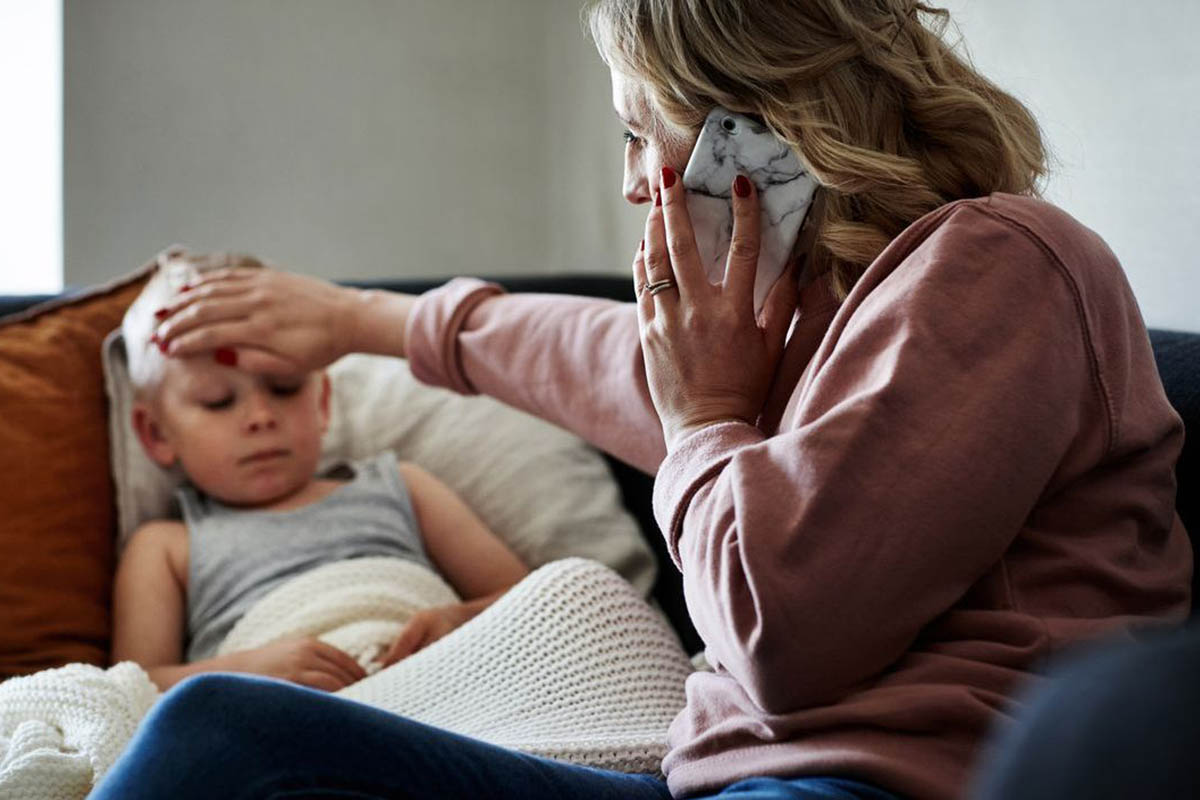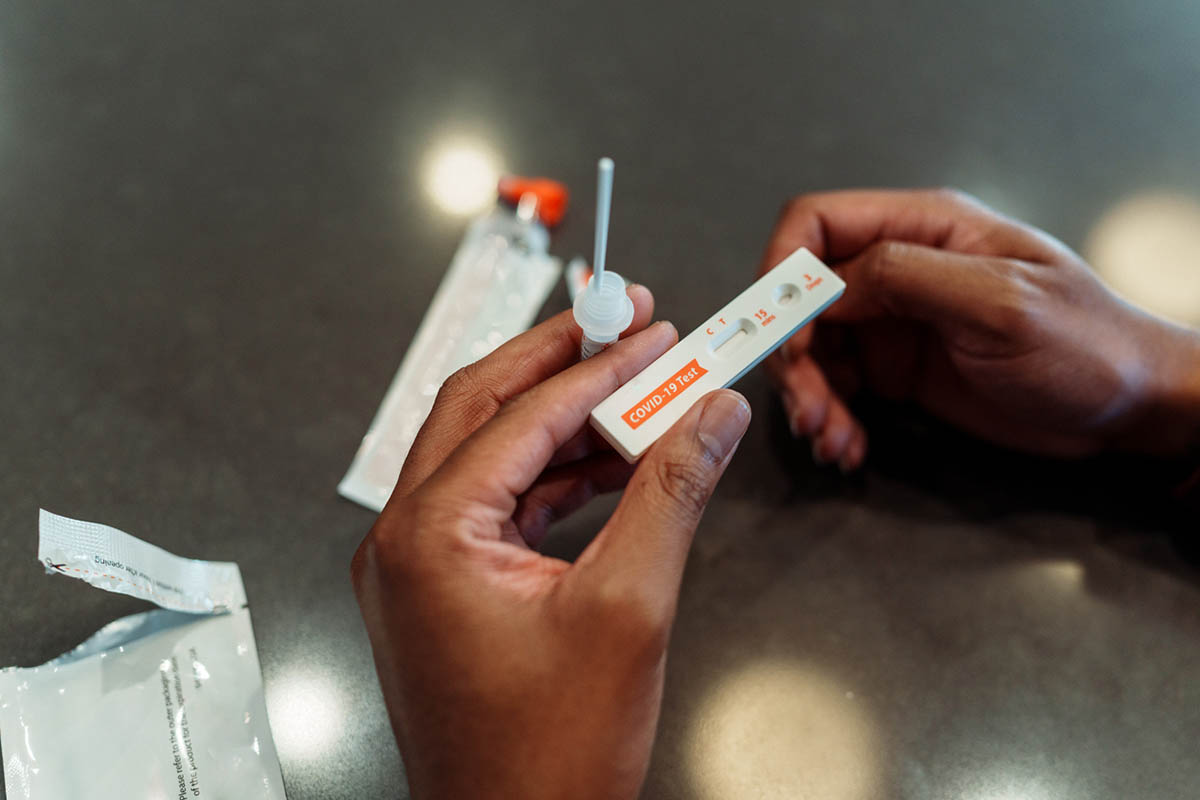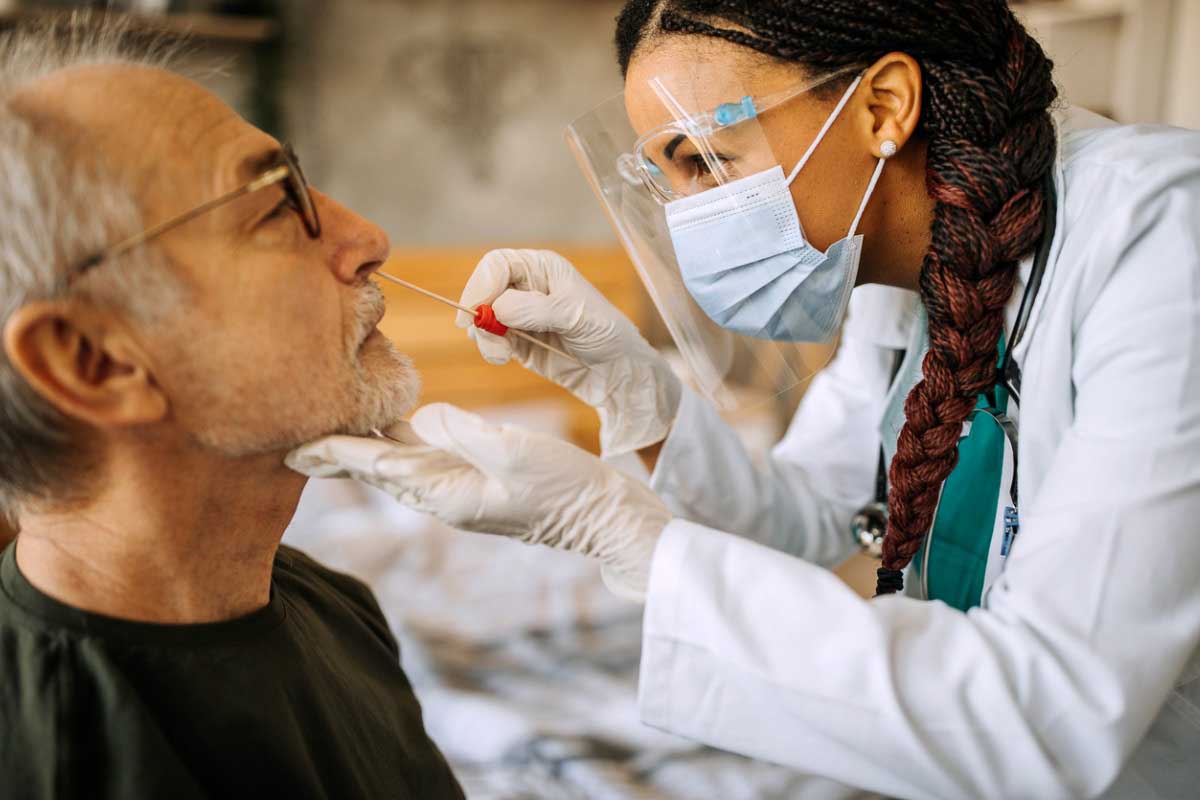
Reactive Psychosis in a Health Care Worker During the COVID-19 Pandemic
The novel severe acute respiratory syndrome coronavirus 2 was first detected in December 2019. As coronavirus disease 2019 (COVID-19) rapidly spread throughout the world in March 2020, the World Health Organization declared the outbreak a pandemic. A few days later, Spain’s government declared a nationwide state of emergency, which included a population lockdown. The resulting isolation and social distancing is an extraordinary situation, and the increased fear of being infected or infecting others, together with the insecurity generated by the likely economic impact, could contribute to an increase in the incidence of mental disorders, including new-onset psychotic disorders.1,2
We present a case of reactive psychosis in a health care worker with no psychiatric history in the context of the COVID-19 outbreak.
Case Report
One week before hospital admission, following the lockdown decree in March 2020, a 60-year-old male health care worker isolated himself at home, dramatically increasing the time spent on social networks or searching for information about COVID-19. He began having recurrent thoughts about the epidemic outbreak, unrealistic concerns about the risk of being contagious, and progressively believing that he would infect his family, lose his loved ones, and, finally, die.
Voluntary hospitalization in the psychiatric unit was required when the patient became overwhelmingly anxious about his recurring thoughts. He started experiencing depersonalization and derealization symptoms, thought blocking, and delusions. He was convinced that his death was near in an out-of-control COVID-19 pandemic, which impacted him both behaviorally and emotionally. He lost 7 lb in 3 days and presented global insomnia, which severely affected his ability to manage daily life.
Olanzapine 10 mg/day was introduced with quick improvement of the psychotic symptoms, allowing hospital discharge after 24 hours. At 1-month follow-up, the patient was still improving but had not yet returned to work.
Discussion
In an infectious disease outbreak context, feelings of extreme fear may appear in the general population, regardless of sex or sociodemographic status.3 Even individuals without mental illness history can develop psychiatric symptoms.
The COVID-19 pandemic has increased symptoms of anxiety, depression, and poor sleep quality, especially in health care workers and young people. Recurrent thoughts about the outbreak seem to increase vulnerability.4 Furthermore, disinformation and fake news about COVID-19 have flooded social media, adding stress in a population excessively exposed to social networks and news about the health crisis. This combination of factors has probably contributed to the increased incidence of mental health issues.5
Similar cases of reactive psychosis and suicide ideation in stressful circumstances related to COVID-19 have been reported,6 underlining the similarity of patient discourse topics about fear of getting infected, fear of being infectious, the population lockdown, or financial losses.7 Brief psychotic episodes can relapse during stressful events, so mental health support and follow-up should be provided at least 6 months after the end of the lockdown for those with prior vulnerable mental health status.6,8 Health care professionals are at a greater risk, especially those on the frontline dealing with traumatic situations and making life and death decisions. Furthermore, inconsistent information about COVID-19 disease course and treatment and the daily changing conditions within the workplace increase their vulnerability.9
Measures to reduce the psychological impact of the outbreak should be implemented. It is important to identify high-risk groups, improve screening systems, adjust treatment delivery, and control the quality of general information related to the pandemic.3 Raising awareness about health care workers’ need for support and interventions to mitigate their emotional distress should be considered, as well as implementation of a long-term monitoring system focused on the mental health of this high-risk group.
Received: May 27, 2020.
Published online: July 9, 2020.
Potential conflicts of interest: None.
Funding/support: None.
Patient consent: Consent was received from the patient to publish the case report, and information has been de-identified to protect anonymity.
REFERENCES
1.Banerjee D, Rai M. Social isolation in COVID-19: the impact of loneliness [published online ahead of print April 29, 2020]. Int J Soc Psychiatry. PubMed CrossRef
2.Pfefferbaum B, North CS. Mental health and the COVID-19 pandemic [published online ahead of print April 13, 2020]. N Engl J Med. PubMed CrossRef
3.Ho CS, Chee CY, Ho RC. Mental health strategies to combat the psychological impact of COVID-19 beyond paranoia and panic. Ann Acad Med Singapore. 2020;49(3):155-160. PubMed
4.Huang Y, Zhao N. Mental health burden for the public affected by the COVID-19 outbreak in China: who will be the high-risk group [published online ahead of print April 14, 2020]? Psychol Health Med. PubMed CrossRef
5.Gao J, Zheng P, Jia Y, et al. Mental health problems and social media exposure during COVID-19 outbreak. PLoS One. 2020;15(4):e0231924. PubMed CrossRef
6.Valdés-Florido MJ, López-D×az ×, Palermo-Zeballos FJ, et al. Reactive psychoses in the context of the COVID-19 pandemic: clinical perspectives from a case series [published online ahead of print April 27, 2020]. Rev Psiquiatr Salud Ment. PubMed CrossRef
7.Anmella G, Fico G, Roca A, et al. Unravelling potential severe psychiatric repercussions on healthcare professionals during the COVID-19 crisis. J Affect Disord. 2020;273:422-424. PubMed CrossRef
8.Torales J, O’ Higgins M, Castaldelli-Maia JM, et al. The outbreak of COVID-19 coronavirus and its impact on global mental health [published online ahead of print March 31, 2020]. Int J Soc Psychiatry. PubMed CrossRef
9.Lai J, Ma S, Wang Y, et al. Factors associated with mental health outcomes among health care workers exposed to coronavirus disease 2019. JAMA Netw Open. 2020;3(3):e203976. PubMed CrossRef
aDepartment of Psychiatry, University Hospital Ramón y Cajal, Madrid, Spain
*Corresponding author: Valeria Cristina Montes de Oca Rivas, MD, Department of Psychiatry, University Hospital Ramón y Cajal, Ctra. Colmenar Viejo, km 9.100, CP 28034, Madrid, Spain ([email protected]).
Prim Care Companion CNS Disord 2020;22(4):20l02692
To cite: Montes de Oca Rivas VC, Hernסndez-Huerta D, Pérez da Silva C, et al. Reactive psychosis in a health care worker during the COVID-19 pandemic. Prim Care Companion CNS Disord. 2020;22(4):20l02692.
To share: https://doi.org/10.4088/PCC.20l02692
© Copyright 2020 Physicians Postgraduate Press, Inc.
Enjoy this premium PDF as part of your membership benefits!





